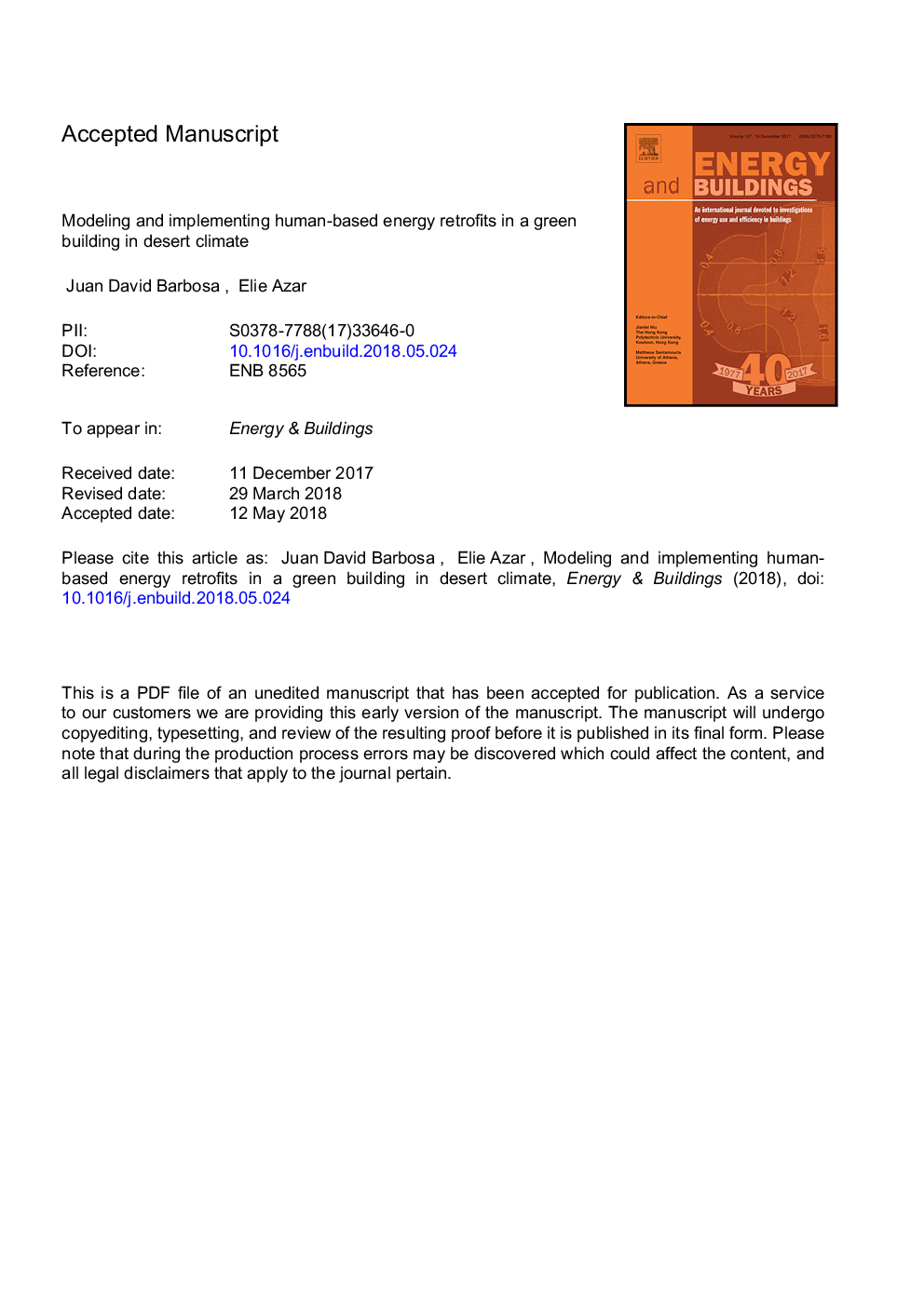| Article ID | Journal | Published Year | Pages | File Type |
|---|---|---|---|---|
| 6727260 | Energy and Buildings | 2018 | 25 Pages |
Abstract
Facility managers and occupants can have a significant influence on the energy consumed in buildings through their operation of various building systems. Acknowledging this energy-saving potential, researchers have turned to building energy modeling to quantify the impact of human actions and operation patterns on building performance and propose energy conservation strategies. However, a review of the current literature reveals consistent shortcomings related to the: (1) implementation and validation of the simulated strategies; (2) availability of granular data on occupants' characteristics and their working conditions; (3) consideration of the building's urban context (e.g., shading effects from neighboring buildings); and (4) implications for low-energy buildings subjected to extreme climate conditions. This paper presents an integrated data collection, energy modeling, and analysis framework to evaluate and apply operation-focused energy saving strategies in commercial buildings. The framework is supported by contextual data covering the building's design, occupants, and urban context. It is validated through a case study on a low-energy design building in Abu Dhabi, UAE. Energy savings of 24.4% are observed in the studied building following the implementation of simple operation strategies that do not require any capital investment nor affect the comfort and wellbeing of building occupants.
Related Topics
Physical Sciences and Engineering
Energy
Renewable Energy, Sustainability and the Environment
Authors
Juan David Barbosa, Elie Azar,
